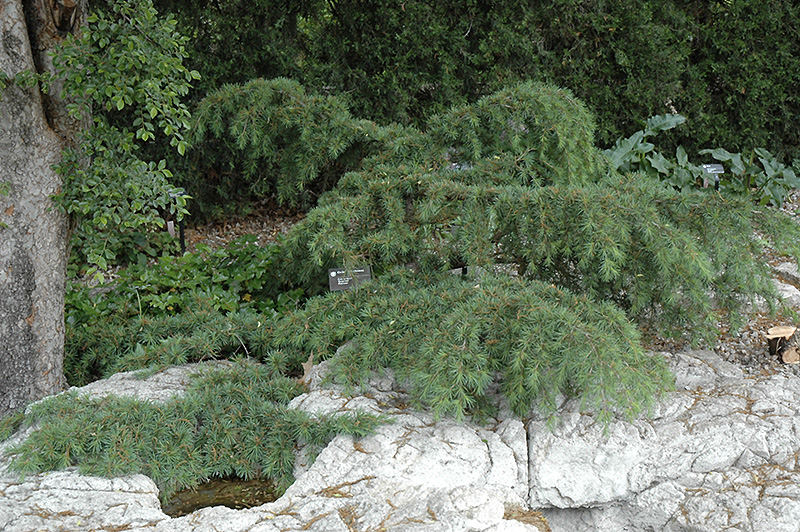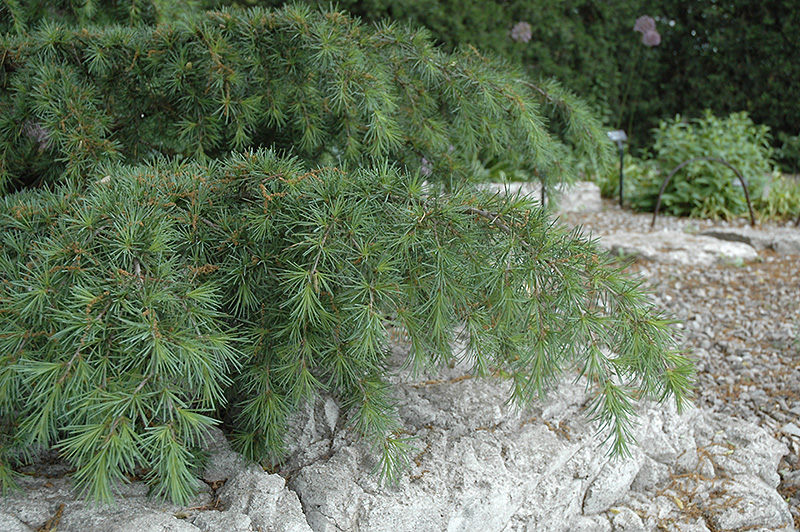>> Home
Sargent's Dwarf Cedar of Lebanon
Cedrus libani 'Sargentii'
Height: 3 feet
Spread: 6 feet
Sunlight:
![]()
Hardiness Zone: 5
Description:
A dramatic accent plant for the garden; this natural dwarf evergreen has pendulous branches that trail along the ground and form a groundcover; use for its fine texture and year-round color
Ornamental Features
Sargent's Dwarf Cedar of Lebanon is a dwarf conifer which is primarily valued in the garden for its highly ornamental weeping form. It has attractive grayish green evergreen foliage. The needles are highly ornamental and remain grayish green throughout the winter.
Landscape Attributes
Sargent's Dwarf Cedar of Lebanon is a multi-stemmed evergreen shrub with a rounded form and gracefully weeping branches. It lends an extremely fine and delicate texture to the landscape composition which should be used to full effect.
This is a relatively low maintenance shrub, and usually looks its best without pruning, although it will tolerate pruning. It has no significant negative characteristics.
Sargent's Dwarf Cedar of Lebanon is recommended for the following landscape applications;
- Accent
- Rock/Alpine Gardens
- General Garden Use
- Groundcover
Planting & Growing
Sargent's Dwarf Cedar of Lebanon will grow to be about 3 feet tall at maturity, with a spread of 6 feet. It has a low canopy. It grows at a slow rate, and under ideal conditions can be expected to live for 50 years or more.
This shrub should only be grown in full sunlight. It is very adaptable to both dry and moist growing conditions, but will not tolerate any standing water. It may require supplemental watering during periods of drought or extended heat. It is not particular as to soil type or pH. It is quite intolerant of urban pollution, therefore inner city or urban streetside plantings are best avoided, and will benefit from being planted in a relatively sheltered location. This is a selected variety of a species not originally from North America.

